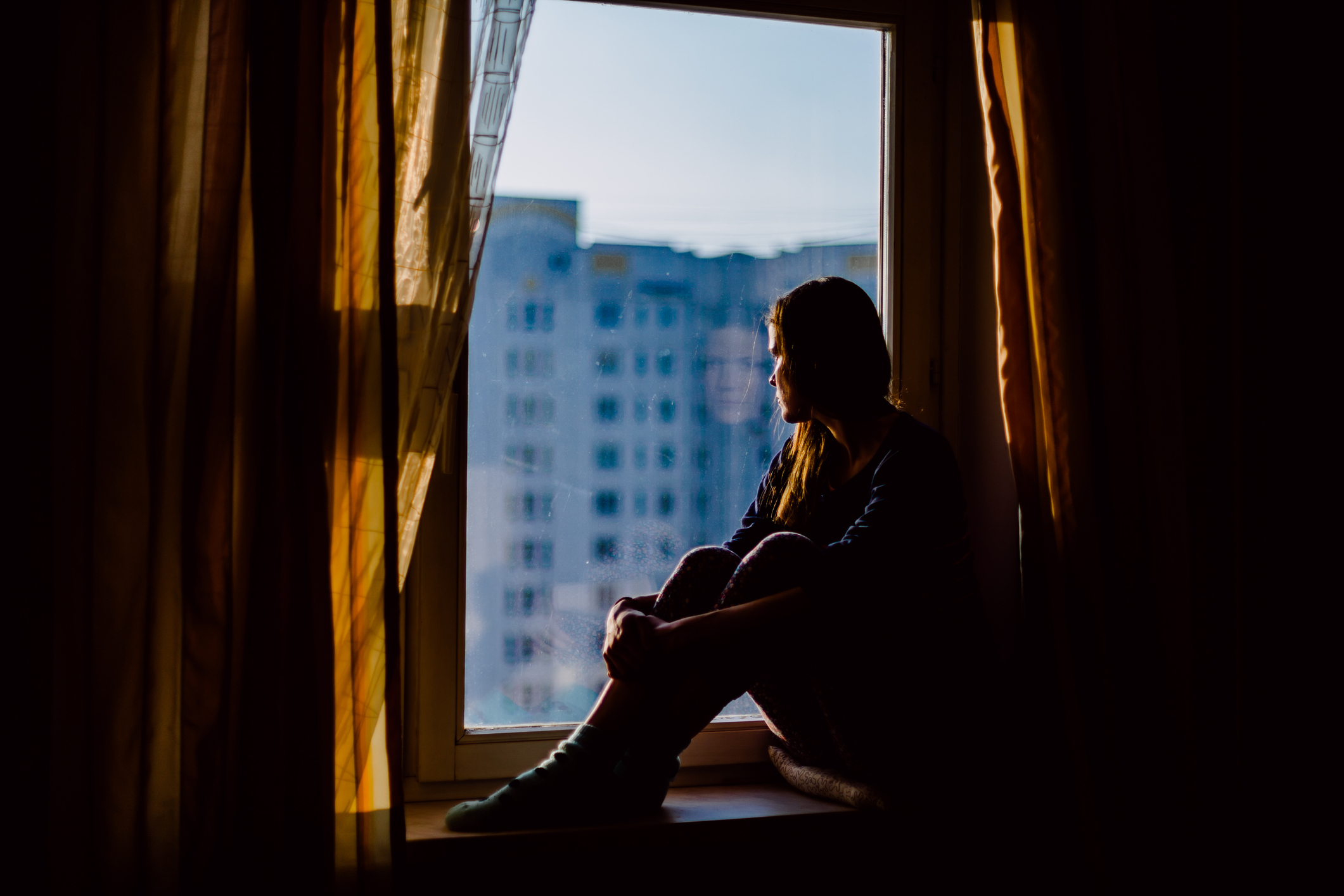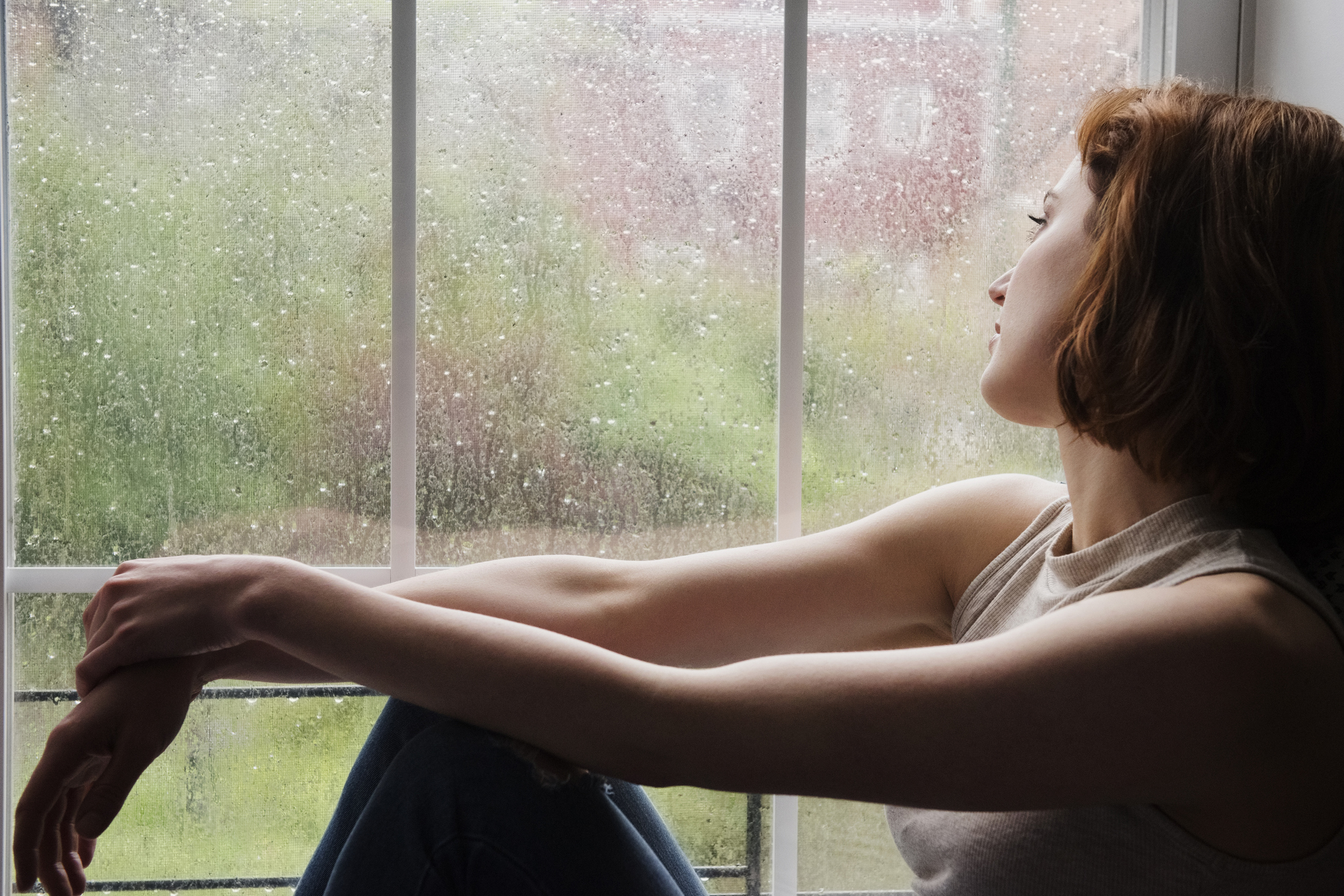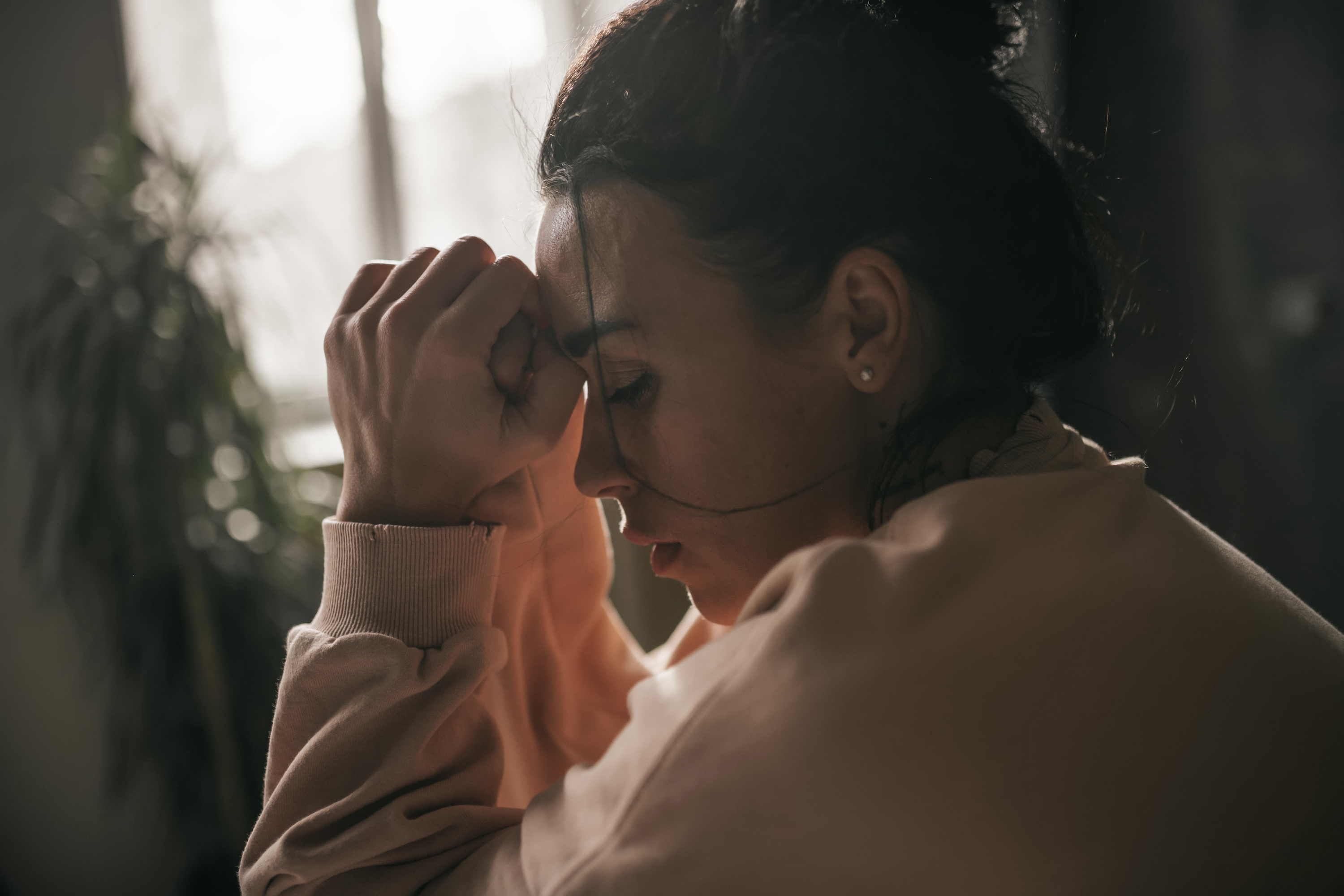Depression symptoms are easy to miss - 22 to know about, if you're feeling blue
It's dark, wet, and cold outside - here's how to know if your mental health might be suffering


Celebrity news, beauty, fashion advice, and fascinating features, delivered straight to your inbox!
You are now subscribed
Your newsletter sign-up was successful
Public service announcement: sure, Christmas may be just around the corner, but it can be quite a miserable time of year for some. It's cold, dark, and we're facing the biggest cost of living crisis in 40 years.
Sticking to a morning routine and using your sunrise alarm clock but still waking up feeling a little blue? Know this: it's normal to feel sad sometimes, and especially right now. Christmas can be difficult,. That said, it's important to know where the boundaries are between everyday lows and symptoms of depression.
“Everyone has times in their lives when they feel fed up or miserable,” says Dr. Beena Rajkumar, co-chair of RC Psych’s Women’s Mental Health Special Interest Group. “It's usually for a particular reason, doesn't interfere too much with daily life, and doesn't usually last longer than a week or two. However, if these feelings go on for weeks or months or become so bad they start to affect every area of your life, you may have depression and need to get help.”
Dr. Rajkumar adds that there is “no shame” in needing help if you are struggling. Know this: depression is “not a sign of weakness”. She continues: “Struggling to take care of yourself or your home, and becoming demotivated at work or in friendships, are symptoms of depression, and do not mean that you are lazy or not a good colleague and friend.”
Before we get into the most common symptoms of depression - don't miss our guides to the best mental health apps, the difference between stress vs anxiety, and the common anxiety symptoms, while you're here.
Symptoms of depression: your guide
Despite the fact that depression is common - it affects one in six of us - there are prevailing misconceptions about the condition. “Though stigma has reduced in recent years, those living with depression may still face misunderstanding, which can be frustrating and upsetting,” says Aisling Traynor, Head of Advice and Information at Rethink Mental Illness. “Depression is not something ‘you can snap out of’ by sheer force of will. Depression is a mental illness, different from the ups and downs we’ll all feel; it isn’t just something that everyone experiences.”
Whether it's low grade depression or more severe, it’s also a very treatable condition. “Depression is not something that lasts forever — you can make a full recovery with the help of things like medication, talking therapy, and managing your condition through exercise and a healthy diet,” says Traynor.
Celebrity news, beauty, fashion advice, and fascinating features, delivered straight to your inbox!
We'll walk through some of the steps to getting treatment below. But if you are experiencing suicidal thoughts or are in immediate danger, call 999 or the Samaritans on 116 123. You could also call NHS 111 to be put in touch with your local mental health crisis team. And if you're worried about someone close to you, read our guide on how to help someone who is suicidal.

22 symptoms of depression to know about
"People experience different levels of depression in different ways," says Dr Rajkumar. "There are mild, moderate, or severe levels of depression. You might feel sad, guilty, or hopeless and struggle to find joy in things. Depression can make it harder to concentrate. Sometimes people might be unusually quiet or withdrawn, isolating themselves. Some people might feel restless, nervous and agitated or, conversely, feel exhausted and listless with no energy to carry out their usual daily tasks."
The NHS lists the following as the symptoms of depression, but notes that there are many others, and that you’re unlikely to experience all of the below.
Psychological symptoms of depression
- Continuous low mood or sadness
- Feeling hopeless and helpless
- Having low self-esteem
- Feeling tearful
- Feeling guilt-ridden
- Feeling irritable and intolerant of others
- Having no motivation or interest in things
- Finding it difficult to make decisions
- Not getting any enjoyment out of life
- Feeling anxious or worried
- Having suicidal thoughts or thoughts of harming yourself
Physical symptoms of depression
- Moving or speaking more slowly than usual
- Changes in appetite or weight (usually decreased, but sometimes increased)
- Constipation
- Unexplained aches and pains
- Lack of energy
- Low sex drive
- Changes to your menstrual cycle
- Disturbed sleep — for example, finding it difficult to fall asleep at night or waking up very early in the morning
Social symptoms of depression
- Avoiding contact with friends and taking part in fewer social activities
- Neglecting your hobbies and interests
- Having difficulties in your home, work or family life
What is it like to have depression?
Paris, 24, has been experiencing depression since childhood but was officially diagnosed with depression when she was 15. “When I was younger, I would get a lot of physical symptoms, like headaches and stomach aches,” she says. “I would just feel so tired, and beat myself up about it, thinking I was just being lazy and wondering how everyone else could get through the day without becoming tearful."
"At one point, I ended up missing three months’ worth of college just because I felt I physically couldn't get out of bed. I didn't understand why. I felt like my body was really heavy.”
She found that other people didn't understand her illness.
People would often want an explanation for why I was so depressed, says Paris. When I first started taking antidepressants, some people assumed that I was being overdramatic or not being honest. I felt guilty because I didn’t have a ‘reason’ for feeling depressed. I had a family, I had friends. The guilt would consume me and make me feel even worse
Paris learned to dissociate, which is a psychological process of disconnecting from your thoughts, feelings, memories, or sense of identity. “To me, it feels a bit like I’m floating, like I’m not actually here, I’m somewhere else,” she says.
When she was in these states, she’d sometimes self-harm. “It would almost be like a grounding technique. It would make me feel more real,” she says. “I didn’t know that it was not an appropriate way to express myself or deal with what I was feeling.”
Paris has since found healthy ways to reconnect with her body, through practicing meditation and yoga poses for beginners. “It really helps me to get back into my body and recognise myself in space,” she says.
Her advice if you think you might be struggling with depression too? “Don’t wait it out and let things fester,” says Paris. “The sooner you ask for help, the better. Because you can't do it all by yourself. You need people advocating for you, so be honest with the people around you, tell them that you're not okay.”

What should you do if you think you have depression?
Treatment for depression ranges from making lifestyle changes (read our Health Editor's top wellness tips, here) and learning self-care techniques, to starting medication and talking therapy.
"With mild depression, it can be helpful to talk to someone close to you about how you feel and what might be bothering you," says Dr Rajkumar. "Keeping active, avoiding drugs and alcohol, getting a good amount of sleep, and engaging in activities that usually bring you joy can also be helpful. If trying to get better on your own isn’t working as well or as quickly as you would like, then it may be a good idea to speak to your GP."
Do note: it's important to monitor how you're feeling, as this can help you recognise when you might need professional help. “The NHS recommends that you see your GP if you experience symptoms of depression for most of the day, every day, for longer than two weeks," says Traynor. There are plenty of apps, like Moodnotes or Headspace, that can make it easier to track your symptoms.
Your GP might recommend you start taking a type of antidepressant, refer you to a course of talking therapy, or both, depending on your symptoms. If you'd like to explore seeing a therapist privately, check out our guide on how to find one, which includes links and information on free or low-cost options.
Whatever you do, don't suffer in silence. "It can feel daunting reaching out for help, or you may think it is pointless, that nothing will ever get better," says Traynor. "But just know that there are treatment options to help you recover. You don’t have to struggle alone.”
